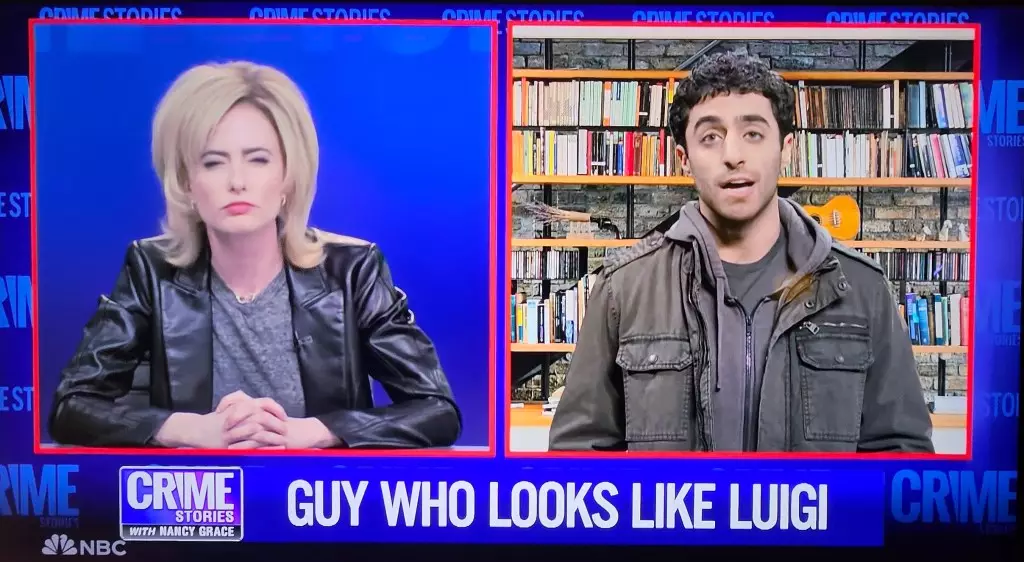In the ever-evolving landscape of late-night television, Saturday Night Live (SNL) has maintained its pivotal role as a satirical compass of American culture since its inception in 1975. This past weekend, SNL’s cold open brought audiences a mix of absurdity and critique, centering on current events inspired by a notorious crime surrounding the healthcare industry. Specifically, the skit humorously portrayed the “healthcare assassin” Luigi Mangione, a character that the talented Sarah Sherman embodied with striking accuracy. As viewers, we engage not only with comedy but also with a reflection on societal values and media consumption.
In this specific cold open, Sherman’s portrayal of Nancy Grace magnified the dissonance of media frenzy surrounding crime, highlighting a twisted societal obsession with dangerous individuals. The framing was initiated with a direct nod to the chaotic nature of both Twitter and YouTube commentary, showcasing how the online populace can often valorize individuals who should be reviled. Sherman, with her exceptional interpretation, pointed out the surreality of how “this dangerous criminal” could be so quickly transformed into a cultural phenomenon.
The lyrics of popular culture often squeeze the grotesque into the palatable, leading to a disconcerting juxtaposition in societal perception. The cold open cleverly tapped into this disconnect by drawing attention to the bizarre infatuation that follows a crime, mocking both media presentation and audience reception. The acknowledgment that Mangione, despite his heinous actions, was being sexualized was both a commentary on our culture’s dysfunction and a darkly humorous observation of find entertainment value in tragedy.
However, the cold open also faced criticism. While Sherman’s character was sharp and, at times, incredibly resonant, the use of other cast members as “warm props” diluted the overall effect of the skit. The sharpness was somewhat numbed by the introduction of additional characters, bringing to light a common critique of SNL: its tendency to revert to formulaic humor instead of maintaining narrative momentum.
Meanwhile, Emil Wakim’s portrayal of Mangione introduced a commendable effort, providing an uncanny representation that enhanced the cold open. However, the comedic stance was muddled as the flow of the sketch transitioned into more convoluted jokes about the absurdity of “sexy slayer” narratives. This shift prompted a contemplative exploration of how SNL navigates cultural commentary while managing comedic expectations — a delicate balancing act that was perhaps sidestepped in this instance.
As we critique the effectiveness of the skit, it’s imperative to acknowledge SNL’s significant role as a cultural mirror. The choice to address the disturbing yet captivating intersection of crime and celebrity is not only timely but necessary. SNL’s cold open serves as a launchpad for discussions about how society engages with crime through a glimmering lens of entertainment, creating space for dialogue about what we normalize.
Bringing in esteemed personalities like Chris Rock as host injected additional weight into the episode, as his established comedic legacy promises a reflective depth amidst the humor. With the 50th season celebrating a multitude of comedic talents, the evolution of SNL is as much about cultural commentary as it is about entertainment. Each episode encapsulates our collective engagement with pressing topics juxtaposed against the absurdity and humor that binds us.
SNL continues to craft its narrative through a complex tapestry of satire and cultural analysis. The cold open touching upon the enigmatic figure of Luigi Mangione and the reaction it elicited from audiences exemplifies the intricacies of humor in wrestling with morality. As viewers indulge in the laughter, they are simultaneously confronted with crucial questions surrounding media, crime, and societal values. The ability of SNL to provoke thought while entertaining is a cornerstone of its enduring legacy, reminding us that comedy remains a fundamental lens through which we view our world.

